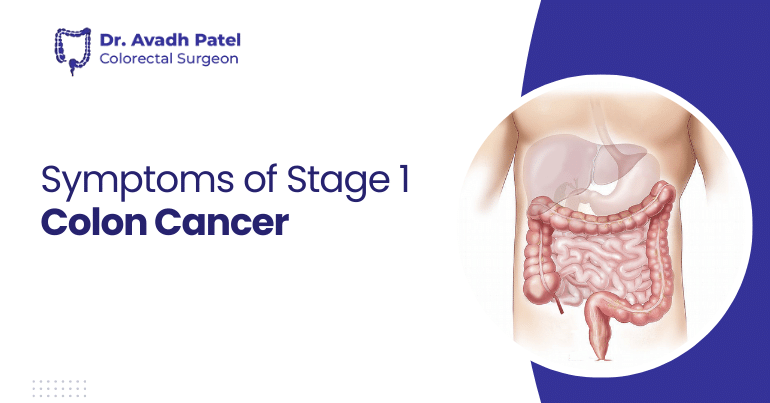Our digestive system relies on the rectum and colon. In order to keep our fluid and electrolyte balance in check, the colon absorbs salts and water before waste leaves the body through the rectum. The colon is unfortunately also prone to cancer.
Polyps, which are clusters of benign cells, are the usual precursors of colorectal cancer, which is more commonly known as colon cancer. It is possible for certain colon polyps to progress to malignant cells over time. These cells may metastasize, or spread, to other organs in due time.
What is Cancer Staging?
The phrase “staging” describes the process of figuring out how far cancer has progressed. By knowing the stage of your cancer, your doctor can better treat you and anticipate how the disease will progress.
When colorectal cancer is in its early stages, known as Stage 1, it has not progressed beyond the colon wall or lymph nodes and remains contained in the lining of the colon or rectum.
Cancer of the colon is a devastating illness. Serious consequences, even death, can result from ignoring the condition. However, early detection is key to a favorable treatment outcome for colon cancer.
This is why it’s critical to be aware of the signs of colon cancer and to have regular screenings.
The six telltale signs of stage 1 colon cancer are as follows:
1. How Early Stage Colon Cancer Is Hard to Notice
There may be no outward signs of colon cancer at all, and in fact, stage 1 colon cancer can progress undetected for quite some time. Since you cannot become aware of your illness’s presence until it has progressed, therapy and diagnosis may be postponed. This highlights the significance of screening colonoscopies.
2. Changes in Bowel Patterns
A dramatic and long-lasting shift in bowel movements is one symptom of colon cancer. Changes in the regularity of your bowel movements are possible, as can symptoms like persistent diarrhea or constipation that do not respond to over-the-counter medications.
3. The Look and Consistency of Stool
Stool changes in color, size, or shape could be a subtle sign of colon cancer. When this happens, you may notice that your stool is noticeably thinner than normal, almost pencil-thin. If there is blood in the feces, it may look darker or have a tar-like appearance.
4. Pelvic Discomfort
Get medical attention from a doctor if you have any new or unusual constipation symptoms, such as cramping or pain while defecating. Further research is warranted if the discomfort persists or is unexplained.
5. Tiredness and Weakness
It can be a red flag if you experience widespread fatigue or lethargy without any obvious reason. You should inform your doctor if you are feeling excessively tired compared to how active you usually are, even though this may have nothing to do with colon cancer specifically.
6. Unwanted Loss of Weight
An alarming symptom is weight loss that does not correspond with a marked improvement in nutritional intake or physical activity levels. One symptom of stage 1 colon cancer is a loss of appetite, which often occurs alongside weight loss.
Also read: What is Colon Cancer? Treatment and Symptoms
Colonoscopy: The Initial Step in Preventing Colon Cancer
Medical professionals can inspect the inside of your bowels with the use of a colonoscopy. By eliminating potentially cancerous polyps during a colonoscopy, doctors can avert the disease’s progression.
Make Colon Screening a Top Priority and Take a Preventative Approach to Your HealthEven when no symptoms are apparent, it is crucial to have regular tests, with a focus on colonoscopies. A powerful protection against the frequently undetectable progression of colon cancer is early discovery through screening, which boosts the success rate of treatments.
Making an appointment today with Dr. Avadh Patel is the first step in improving your colon health for the future.

